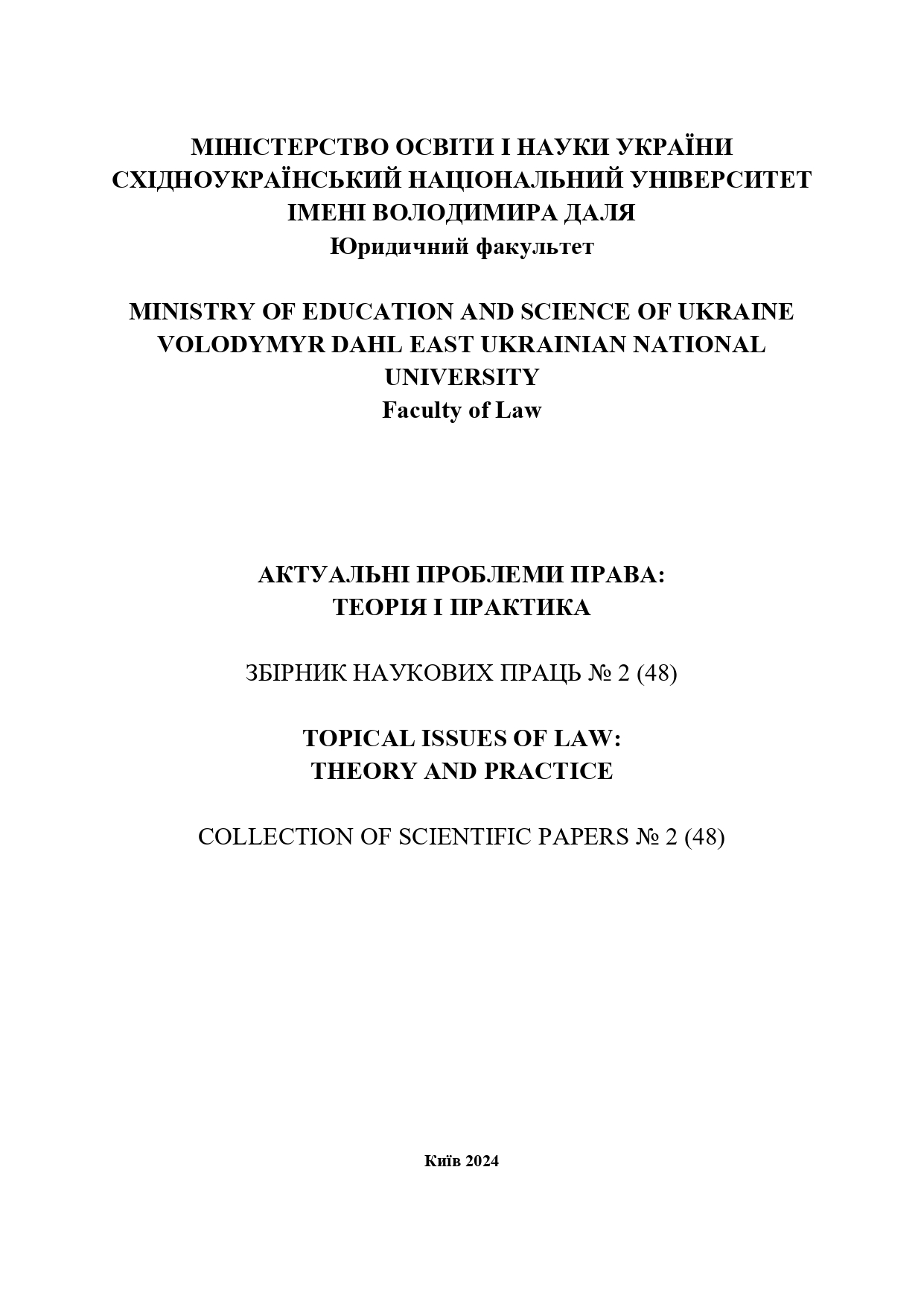SOCIAL STATE: CONCEPT, FEATURES AND FUNCTIONS IN THE CONTEXT OF DECENTRALIZATION OF POWER
DOI:
https://doi.org/10.33216/2218-5461/2024-48-2-274-287Abstract
The article is devoted to a comprehensive study
of the welfare state concept, its features and functions
in the context of decentralization of power. The author
examines the basic principles of the welfare state,
which include ensuring social justice, equality of
opportunities and social protection of citizens. The
author analyses the Ukrainian legislation on the
legitimization of the definition of the content of the
categories “concept of the welfare state”, “welfare
state”, “social policy”, “principles of the welfare
state” and concludes that it is necessary to include
meaningful definitions of these categories in legal
acts. The author analyses how the welfare state
concept is implemented through the social policy of
the State, including legal regulation and provision of
social services. Particular attention is paid to the
study of the functions of the welfare state, and their
classification is provided. The impact of
decentralization on the effectiveness of social policy
and governance is studied, in particular, how the
transfer of some powers to local governments affects
the implementation of social policy and improvement
of the quality of social services. Particular emphasis
is placed on the social functions of local selfgovernment,
analysing the role of local selfgovernment in the implementation of social policy, meeting the needs of communities and providing the necessary services.
Keywords: welfare state, social policy, functions of the welfare state, decentralization, local selfgovernment.

